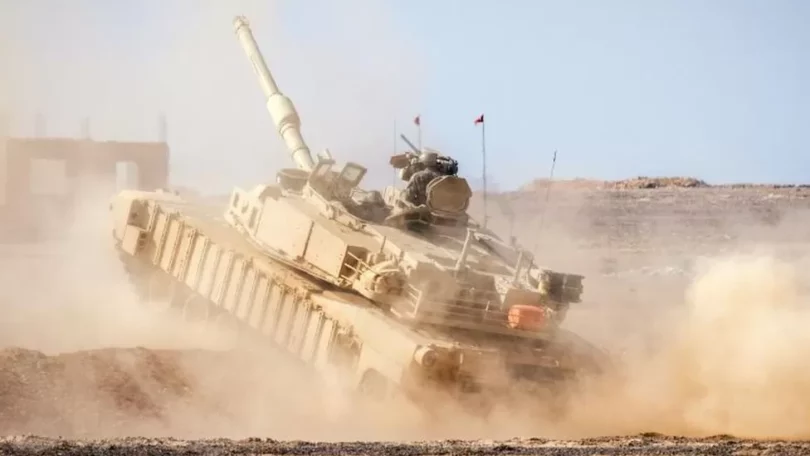Barbara Plett Usher
The M1 Abrams tanks the US will send to Ukraine are a significant upgrade in the arming of Kyiv, but will not make any difference to the next phase of the war.
The decision to send them is an abrupt reversal after longstanding Pentagon arguments that they are a poor fit for the Ukrainian battlefield.
But the announcement itself does make a difference.
“It unlocks the German decision to send Leopard 2 tanks and for others who have Leopard tanks to send them as well,” Kurt Volker, the former US Special Representative to Ukraine, told the BBC.
Western allies want to build up Ukraine’s armoured vehicle capacity in the next six to eight weeks to help prepare it for an expected Russian spring offensive.
It will take much longer than that to get the Abrams to the battlefield and to train Ukrainians to look after them. German-made Leopards, on the other hand, can be deployed relatively quickly and are easier to operate.
American and German officials did not publicly link the two issues. But they co-ordinated their announcements today, resolving a growing dispute in the Western alliance that had concerned Washington.
From the beginning of the war the Biden administration and its allies have carefully calibrated their weapons deliveries to avoid provoking a Russian escalation.
But they began to drop their taboos after a string of Ukrainian battlefield successes. And the prospect of a renewed Russian offensive has shifted the focus to tanks – necessary especially for Ukraine’s ability to fight in open terrain in the east of the country.
With some 2,000 Leopard 2 tanks deployed throughout Europe, Berlin came under increasing pressure from some allies to send its own or to give approval for other countries to export them.
But the Germans did not want to be seen as the only Western power deploying battle tanks against Russia – and Britain’s announcement that it was planning to contribute more than a dozen wasn’t enough.
Until a few days ago, Pentagon officials were saying that the M1 Abrams weren’t an option.
While the high-tech tanks are among the best in the world they’re also complicated, expensive, difficult to maintain, and require extensive training.
None of that has changed.
But there was debate within the administration about how to respond to the European rift, and a number of phone calls between President Joe Biden and German Chancellor Olaf Scholz in recent weeks.
One senior administration official said Biden was focused on transatlantic unity.
“What this decision does do is show how unified we are with our allies and partners and doing all of this in a co-ordinated way,” agreed the spokesman for the National Security Council John Kirby.
“Coupled with this near term commitment by the Germans, the Abrams represent the long term commitment,” a US official said.
A former US ambassador to Ukraine, John Herbst, has a more hardnosed view of that long term commitment.
“The administration was not necessarily keen on tanks,” he said.
“But then they saw how the debate was proceeding. They saw the public perception. I think they did make a good faith effort to persuade the Germans.
“But to make that work, they had to agree on the Abrams so they did. That’s not something they were keen on doing. And that’s why the Abrams are taking a very, very slow boat to Ukraine, so to speak.”
Whatever the case, the Abrams will be a long time coming, given the complications and the method of procurement. The tanks will be purchased from private contractors, not sent from Pentagon stocks, so it will take many months – maybe even a year – before they get to Ukraine.
In the meantime, military analysts say the addition of Leopard tanks will be a significant boost to Ukraine’s offensive ability but not a silver bullet: they will have to be merged into a combined arms team along with infantry and artillery.
That will be an important element of whether this is a game-changing moment in the conflict.
It may also be a measure of whether the goalposts on weapons will shift again – to eventually include longer range missiles and war planes.
courtesy :bbcnews







